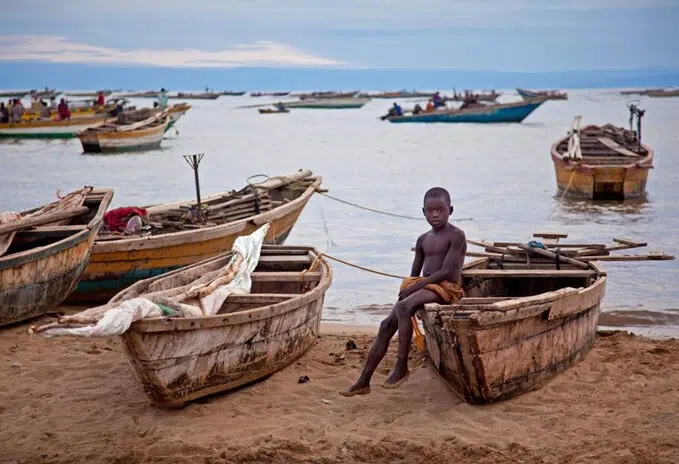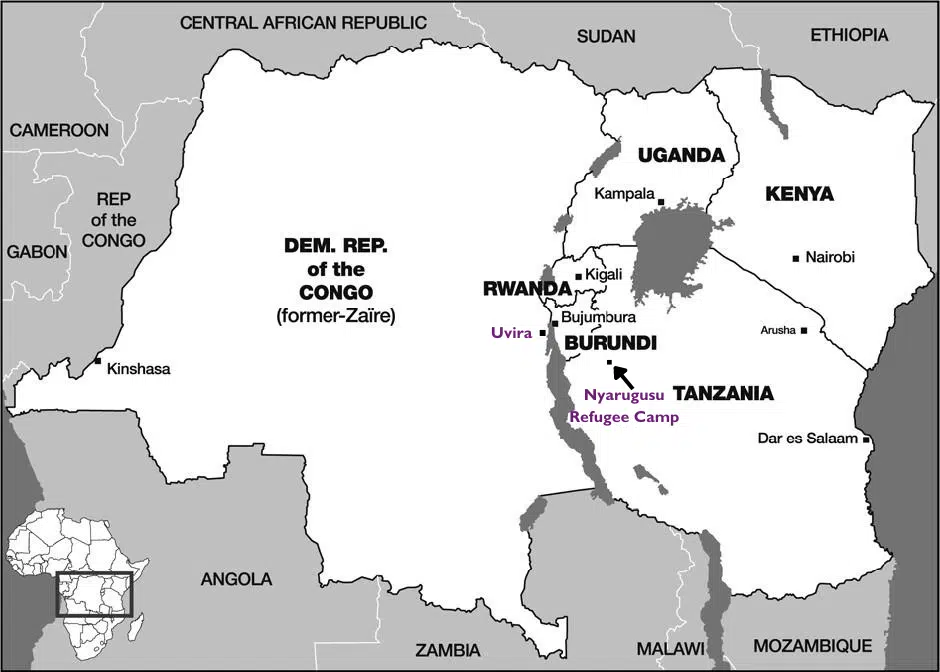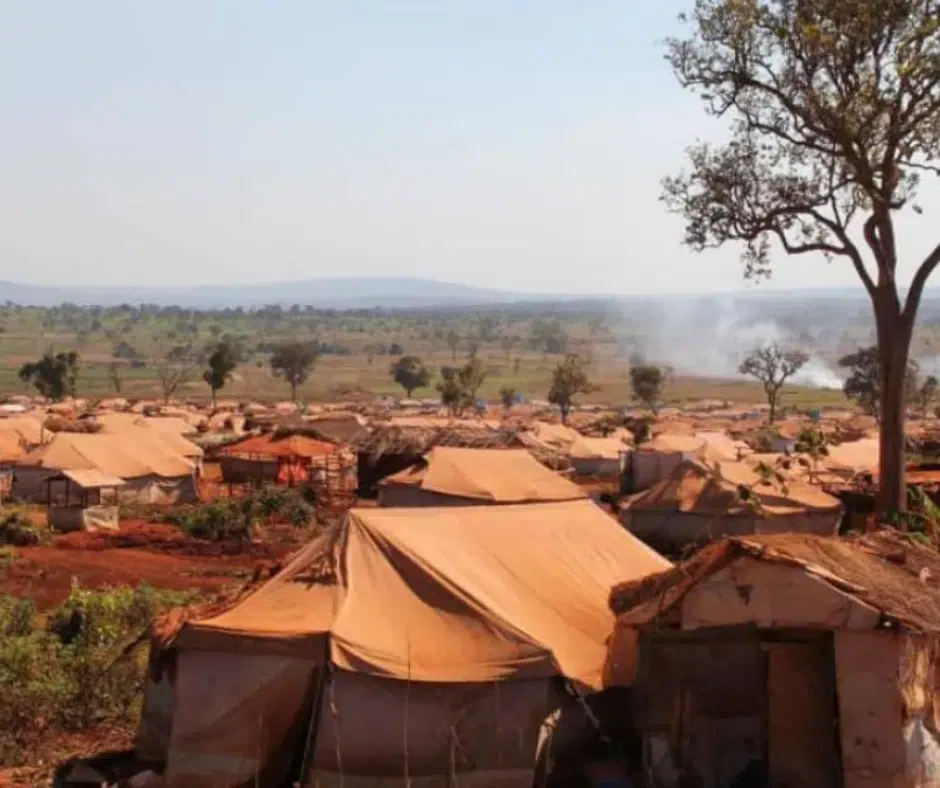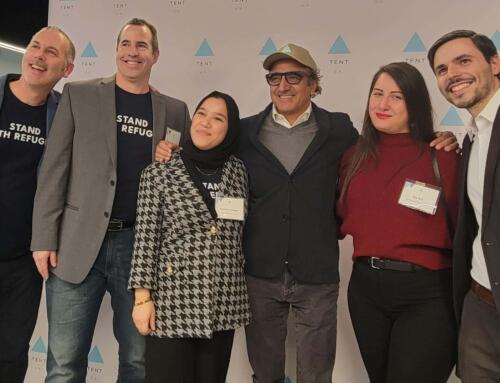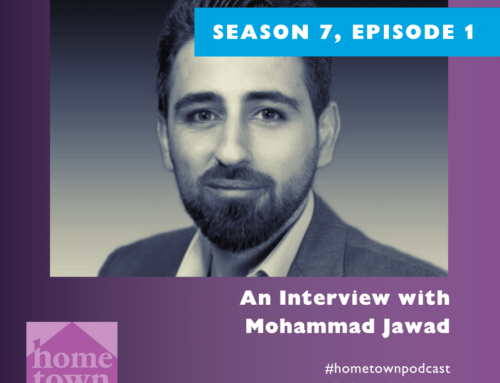This is Part 1 of a story told in three segments, and part of EMM’s “Refugee Voices” series.
Salemu Alimasi began his life in the early 1990s in Uvira, a town nestled in a verdant valley close to the sparkling waters of Lake Tanganyika, in the eastern part of the country then known as Zaire, and since 1997 as the Democratic Republic of Congo (DRC).
Map of the Great Lakes Region, by International Committee of the Red Cross
Thinking back to his early childhood, Salemu recalled Uvira as “a peaceful, friendly, and diverse” community. While his schooling was in French, he spoke Swahili or Kifuliro at home and in the community. Although his mother was from the Mukono tribe, his father, Salemu, and his siblings identified as Balizi. The family attended one of many Pentecostal churches, but had neighbors who were Methodist, Baptist, 7th Day Adventist, Catholic, or Muslim. Salemu loved going to church — singing in the choir, listening to Bible stories, and answering questions in hopes of winning a prize: candies or a comic book.
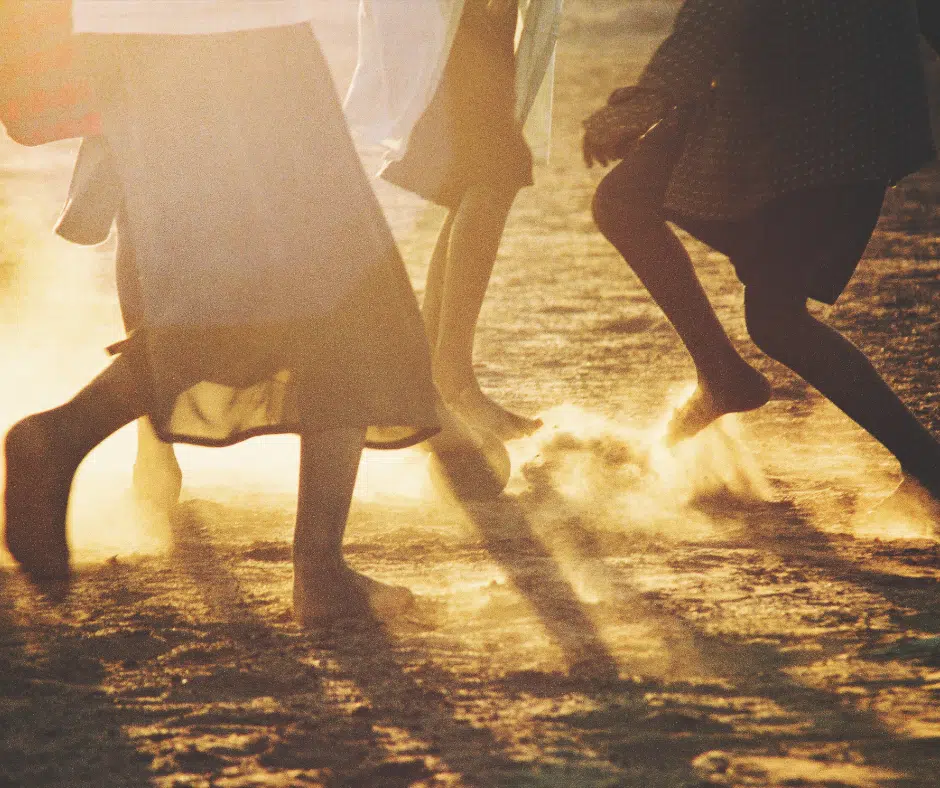
However, the tranquility of their childhood in Uvira was shattered with the spread of violence across the region, due to complex conflicts rooted in the patterns of exploitation and division created by colonialism and the difficulties of governing effectively in the wake of independence. Colonial powers had often privileged a small segment of the native population, frequently defined in “ethnic” terms, as a way of maintaining control. After independence, internal divisions and resentments along with limited education, infrastructure, and conflicts over access to natural resources added to the difficulties that new nations faced.
During much of Salemu’s childhood, his country was led by Mobutu Sese Seko, a dictator who came to power in 1965 with support from the US government. Unrest and dysfunction were endemic across the Great Lakes region of east Africa, and battles for power and resources often fell along ethnic lines which straddled national borders. As movements of displaced people fleeing conflict and violence grew, so did the number of refugee camps created to accommodate those flows. In 1996, the First Congo War erupted, Mobutu Sese Seko had to flee, and forced displacements and deaths across the region skyrocketed.
At that time, Salemu Alimasi was only 6 years old. Forced to leave their home in Uvira by the encroaching violence, he and his family fled on foot. After days of walking, they came to a place called Makobola, where Salemu witnessed a terrifying massacre: a group of people, children and adults, had been trapped inside a house by armed soldiers, and the house set on fire. The soldiers stood by, ignoring the screams and cries for help. Horrified, Salemu ran off, fearing that “the same thing could happen to me.” In the chaos, he was separated from his parents and siblings, but managed to find his grandfather who, with some of his cousins, was also fleeing for safety.
Making their way to a nearby port on Lake Tanganyika, their grandfather paid for them to board a boat to cross into Tanzania, where they were led to Nyarugusu Refugee Camp (see map above). In 1996, this was a new refugee camp, created in the middle of a forest by the Tanzanian government and the UNHCR in anticipation of further displacement following wars across the region. Under his grandfather’s care, Salemu and his cousins stayed at this camp for 18 miserable months.
Hearing that peace had been reestablished in Uvira and realizing that no sustainable solutions could be found at Nyarugusu, Salemu’s grandfather decided to take advantage of the UNHCR’s offer to repatriate people willing to return home. The family boarded trucks and then a boat, back to Uvira.
Salemu was overjoyed to be reunited with his parents and siblings. But at less than 8 years of age, he had already experienced more trauma and loss than any child or person should ever face. And it would not be long before he and his family would be forced to flee again.
The next part of Salemu’s journey will be continued in a subsequent post.


